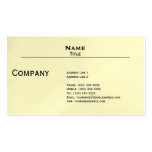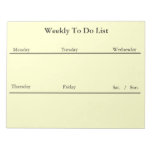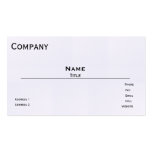While Google’s algorithms may be mysterious, the company’s mission is not: Google wants to reward high-quality, content-rich sites, and penalize those that don’t fit the bill. Penalties can literally take down a site overnight, clobbering once respectable rankings into a sea of oblivion.
If you’ve noticed your web site slipping in rankings, or you just want to take steps to prevent it from happening, it’s time you learn exactly what constitutes the majority of Google’s penalties. Consider this the best practices for websites who want to stay on Google’s good side. Go against these suggestions, and you are duly warned.
How to Tell if You’ve Been Penalized
If you’re not keeping close tabs on your rankings, that’s the first thing to focus on. Monitoring your site’s performance on a weekly basis gives you the necessary head’s up when things take a nosedive. Warning signs are more common than an overnight death drop; pay attention to your metrics, and you can plug the holes before the ship sinks.
Here are some telltale signs that Google is not happy with your site. Some are preliminary warnings, and some are downright catastrophic. All, however, require your attention if you spy them:
- Your site doesn’t rank well for your brand / company name
- When you see a listing on Google for your site, it references a secondary page, not your homepage
- PageRank has slightly or significantly dropped
- Page one positions are slipping back to page two or worse
- Your site has been completely removed from Google’s cached results
- Searching “site: yourdomain keyword” yields no results
When you spy any of the above, you know Google has taken aim. A non-response on your part could be fatal for your business.
Top Reasons Google Penalizes Businesses
1. Duplicate Content – It’s never a good idea to use the same content on multiple pages. Keep articles fresh, current, valuable, and tailored to your audience. Use tools like Copyscape to ensure you haven’t repeated yourself.
2. 404′s – Loads of internal errors is another surefire way to get dinged. Make sure your site functions well and doesn’t lead users into dead ends and links with missing content.
3. Purchasing Links – Because buying links is a way to manipulate the system, Google is not fond of the practice. If you’ve bought even a handful of bad links, you are very likely to get penalized.
4. Stuffed Keywords – Less is more when it comes to using your keywords throughout your content. If copy is written for a search engine, and not a human being, it’s ripe for punishment.
5. Link Swaps – If you have a slew of reciprocal links – that is, links that also point back to you – there’s a danger of a penalty. This used to be a marketing mainstay, but has fallen out of favor thanks to Google’s policies.
6. No Sitemap – Sitemaps are like food to search engines. If you don’t have one, or simply have missing content, your PageRank could definitely suffer.
7. Stolen Content – Sites that regularly scrape content from other peoples’ sites are also targeted by Google, which deems this an unsavory practice, for obvious reasons. Just produce your own content and you have nothing to worry about.
8. Excessive H1 Tags – Sites that attempt to stuff loads of keywords in H1 tags catch Google’s attention in a bad way as well. Use these to communicate your topics concisely and they are SEO gold.
9. Links from Foreign Sites – Since Google maintains that most users are after sites from a single language, links from foreign language sites can also get you in hot water.
10. Bad External Links – You simply have to stay on top of your link partners and make sure that external URLs linking out to other sites are still current, lest you be penalized for dysfunctional content.
11. Website Outages – If your site is down excessively, or continues to time out, Google can literally give up and assume you are no longer in business.
12. Hidden Content or Links – If you’re attempting to be sneaky, you’re playing with PageRank fire. Google scoffs at hidden links and/or copy, as it is normally executed to fool search engines and users.
13. Scads of Anchor Text – Penguin put the kibosh on excessive anchor text, so choose yours wisely. Be concise and clear when you are placing anchor text in your content, and Google won’t take notice.
14. Listing on Blog Networks – Don’t use these suckers; they are from an archaic practice and are severely frowned upon by Google.
15. Way too Many Affiliate Links – A handful of reputable affiliate links is fine and dandy. Go crazy with piles of affiliate links and you may very well get penalized.
16. Slow Load Times – If your site consistently takes way too long to load, Google will bump down your PageRank for sites that offer a better user experience.
17. Spam – Most sites that get dinged for spam are penalized because of excessive content spam. If you allow comments, make sure they are legitimate, not riddled with spammy bait and switch comments, or you risk a PageRank drop.
What other infractions have you noticed Google taking action against? Share your findings in the Comments section.









No comments:
Post a Comment